Dark spots, also known as hyperpigmentation, are a common skin issue that can affect anyone, regardless of age or skin type. They appear as patches of skin that become darker than the surrounding skin, creating an uneven skin tone. These unsightly patches on the skin can be a cause of concern for many and have a considerable effect on someone’s confidence. A range of products are available in the market to target these kinds of concerns. A dark spot corrector is mostly available as a topical treatments, but there is also growing evidence on the use of supplements and medications to help lighten these stubborn spots.
Understanding the causes and types of dark spots is the first step towards addressing them effectively.
Causes of Dark Spots
Dark spots are primarily caused by an excess production of melanin, the pigment that gives skin its color. This overproduction can be triggered by several factors:
- Sun Exposure: The sun’s ultraviolet (UV) rays are one of the primary causes of dark spots. These rays stimulate the production of melanin, the pigment that gives our skin its color. Prolonged and unprotected exposure to the sun can lead to an overproduction of melanin in certain areas, resulting in dark spots or patches. These are often referred to as sun spots or age spots.
- Hormonal Changes: Dark spots can also be a result of hormonal fluctuations. This is particularly common in women during pregnancy, menstruation, or menopause, and these dark spots are often referred to as melasma or the ‘mask of pregnancy.’ Hormonal medications such as birth control pills can also trigger hyperpigmentation.
- Inflammation: Inflammatory skin conditions like acne, eczema, or psoriasis can lead to dark spots. This is known as post-inflammatory hyperpigmentation (PIH). When the skin is injured or inflamed, it can respond by producing more melanin, leading to dark spots or patches once the inflammation subsides.
- Aging: As we age, our skin becomes more susceptible to hyperpigmentation. Age spots or liver spots are types of dark spots that are common in older adults. These spots are usually larger and appear in areas most exposed to the sun, such as the face, hands, and arms.
- Medications: Some medications can increase your skin’s sensitivity to the sun, making you more likely to develop dark spots. These include certain antibiotics, antifungals, antiarrhythmics, and antihistamines.
- Skin Trauma: Any form of skin trauma, such as burns, cuts, or abrasions, can lead to hyperpigmentation during the healing process.
- Underlying Conditions: Certain medical conditions, such as Addison’s disease or hemochromatosis, can cause dark spots due to changes in the skin’s pigmentation.
- Genetics: Lastly, genetics can also play a role. If hyperpigmentation runs in your family, you may be more likely to develop dark spots.
It’s important to remember that while dark spots are usually harmless, any changes in your skin should be evaluated by a healthcare provider to rule out serious conditions like skin cancer. It’s also crucial to protect your skin from the sun, as UV radiation can worsen dark spots and increase your risk of skin cancer.
Types of Dark Spots
Dark spots can appear in various forms on the skin. Here are some of the most common types:
- Freckles: These are small, flat, brown marks that commonly appear on the face and other sun-exposed areas. Freckles are triggered by exposure to sunlight and are more common in individuals with lighter skin.
- Sun Spots: Also known as solar lentigines or age spots, sunspots are flat, darkened patches of skin that are typically larger than freckles. They usually appear in areas frequently exposed to the sun, such as the face, hands, and arms. Sun spots are common in adults over 40, but they can appear in younger people with significant sun exposure.
- Melasma: Often referred to as the ‘mask of pregnancy,’ melasma is characterized by brown or gray-brown patches on the face. It’s usually symmetrical, with matching marks on both sides of the face. Melasma is often triggered by hormonal changes, such as pregnancy or birth control pills, and is more common in women.
- Post-Inflammatory Hyperpigmentation (PIH): This type of dark spot appears after a skin injury or inflammation has healed. It can occur after various skin conditions, such as acne, eczema, or psoriasis. PIH appears as flat spots of discoloration on the skin, which can range from pink to red, brown, or black, depending on your skin tone and the depth of the discoloration.
- Liver Spots: Despite their name, liver spots have nothing to do with the liver. Instead, they’re a common type of hyperpigmentation that occurs in older adults, typically over the age of 50. Liver spots are larger than freckles and appear as flat, tan, brown, or black spots. They usually develop on sun-exposed areas, such as the face, back of the hands, shoulders, and arms.
- Lentigo Maligna: This is a type of melanoma, or skin cancer, that appears as dark, irregularly shaped spots. Lentigo maligna can grow slowly over many years and is usually found in elderly people on sun-exposed areas like the face and neck.
Dark Spot Correctors Available in Drugstores
- Sunscreen: Although they don’t contain any active ingredient that targets dark spots like the rest on this list, sunscreen is undeniably a vital component to your dark spot corrector regimen. As discussed above, sun exposure is a huge factor when it comes to the development of dark spots. Protecting your skin from further sun damage is crucial.
Brands to consider: Cetaphil Sun SPF 50+ Light Gel, Anessa Perfect UV Sunscreen Skincare Gel SPF 50+ PA++++, EltaMD UV Clear Broad-Spectrum SPF 46
- Vitamin C Serums: Vitamin C is a potent antioxidant that helps to neutralize harmful free radicals that can damage the skin and lead to hyperpigmentation. It also inhibits the enzyme tyrosinase, which helps to prevent melanin production, thus reducing the appearance of dark spots. Vitamin C is best used in the morning, just make sure to check its compatibility with your other products when layering.
Brands to consider: Garnier Light Complete Vitamin C Serum, CeraVe Skin Renewing Vitamin C Serum, Dear Klairs Freshly Juiced Vitamin C Drop, Dr. Sensitive Collagen + Vitamin C Serum
- Niacinamide: Niacinamide, a form of vitamin B3, has been shown to reduce the production of melanin and can help to lighten dark spots over time. It also has anti-inflammatory properties that can help to reduce redness and blotchiness. Niacinamide is available in a lot of forms like serum, cream, and even bath soap and shower gel.
Brands to consider: Neutrogena Hydro Boost Niacinamide Serum, Olay Luminous Niacinamide + AHA Super Serum, Luxe Organix Whitening Repair Niacinamide 10%, Cosrx The Niacinamide 15 Serum, Beauty of Joseon Dynasty Cream
- Retinol: Retinol is a derivative of vitamin A that promotes skin cell turnover, which can help to fade dark spots over time. It works by accelerating the rate at which skin cells are replaced, helping to shed the top layer of skin cells where the dark spots are most visible.
Brands to consider: Paula’s Choice 1% Retinol Treatment, Olay Retinol 24 Serum, Snailwhite Gold Advanced Cream Retinol + Bakuchiol, Innisfree Retinol Cica Moisture Recovery Serum, Some by Mi Retinol Intense Reactivating Serum,
- AHAs & BHAs: AHAs and BHAs are types of chemical exfoliants that work by loosening and removing the top layer of skin cells. This process helps to diminish the appearance of dark spots and promotes a more even skin tone. AHAs and BHAs increase sun sensitivity, necessitating daily sunscreen application. They may also cause skin irritation, particularly for sensitive skin, so starting with a lower concentration is advisable.
Brands to consider: Face Republic AHA BHA Toner, Cosrx AHA/BHA Clarifying Treatment Toner, Beauty of Joseon Green Plum Refreshing Toner : AHA + BHA, Some by Mi AHA-BHA-PHA 30 Days Miracle Acne Clear Foam, Belo AHA/BHA Skin Renewing Serum
- Hydroquinone: Hydroquinone is a skin-lightening agent often used to treat hyperpigmentation, including age spots, melasma, and post-inflammatory marks caused by conditions like acne. It works by inhibiting the activity of tyrosinase, the enzyme responsible for melanin production, thereby reducing the production of melanin in the skin. While hydroquinone is effective, it’s not without potential side effects. These can include skin irritation, redness, and dryness. In rare cases, hydroquinone can cause a skin condition called ochronosis, which results in blue-black darkening of the skin. To reduce the risk of side effects, it’s important to use hydroquinone under the guidance of a healthcare provider or dermatologist. Moreover, hydroquinone can make the skin more sensitive to the sun, increasing the risk of sunburn. Therefore, it’s crucial to use a broad-spectrum sunscreen of at least SPF 30 daily when using hydroquinone.
Brands to consider: Maxi Peel Exfoliant Solution, GT Bleaching Cream (Hydroquinone
+ Tretinoin), RDL Babyface Astringent Hydroquinone + Tretinoin, Tri-Luma (fluocinolone acetonide, hydroquinone, tretinoin) cream
- Kojic acid: Kojic acid is often used to lighten dark spots or hyperpigmentation. It works by inhibiting tyrosinase, an enzyme involved in melanin production, thus reducing the pigmentation of the skin. Found in a variety of skincare products, it can effectively fade age spots, sun damage, and scars, leading to a more even skin tone.
Brands to consider: Belo Intensive Whitening Face And Neck Cream SPF30, Kojie San Skin Lightening Classic Soap, Naturabella Kojic Acid w/ Goat’s Milk + Niacinamide
- Oral supplements: Oral supplements can be an effective addition to a skincare routine aimed at reducing dark spots and improving overall skin health. These supplements often contain ingredients known for their skin-lightening and brightening properties.
- Glutathione: Known as the body’s “master antioxidant,” glutathione can lighten skin by inhibiting the production of melanin. It’s often used in oral supplement form for its skin-brightening benefits. However, the effectiveness can vary, and more research is needed to confirm its benefits and safety.
- Vitamin C: An essential nutrient, vitamin C is a potent antioxidant that can brighten skin, boost collagen production, and reduce the impact of harmful UV exposure. While it’s often applied topically, oral supplements can also help support skin health.
- Fish Oil: Rich in omega-3 fatty acids, fish oil supplements can help maintain healthy skin and reduce inflammation, which can contribute to the development of dark spots.
- Pynocare: Pynocare is an oral over-the-counter or OTC medication designed to target hyperpigmentation and dark spots. Pynocare is formulated with MSCC Complex (Melasma Skin Clear Complexion), a proprietary blend of powerful antioxidants and plant extracts. It contains Procyanidin derived from French Maritime Pine Bark Extract, Vitamin A (as D. salina extract), Vitamin C, and Vitamin E. This complex works by targeting the overproduction of melanin, thus, minimizing the appearance of dark spots. It is clinically-proven and FDA-approved for the treatment of hyperpigmentation caused by melasma.
Like any supplement or medication, Pynocare should be taken under the guidance of a healthcare provider. While it is generally well-tolerated, potential side effects may include gastrointestinal discomfort. It’s also important to note that results can vary among individuals, and it may take several weeks or months to see
improvements in skin discoloration. Pynocare is available in all leading drugstores nationwide and online via LifePal Pharmacy in Lazada and Shopee.
Targeting Dark Spots from the Inside and Out
In conclusion, dark spots or hyperpigmentation are common skin concerns that can be effectively managed with the right understanding, approach, and products. From topical treatments like Vitamin C, retinol, AHAs and BHAs, hydroquinone, and niacinamide, to oral supplements like Pynocare, there are a variety of options available to help lighten dark spots and achieve a more even skin tone.
Remember, it’s essential to protect your skin from further sun damage, as UV exposure can worsen dark spots and stimulate melanin production. Consistency is key in any skincare routine, and significant changes may take a few weeks or even months to appear.
As always, it’s crucial to consult with a dermatologist before starting any new skincare regimen or supplement. They can provide personalized advice based on your skin type, concerns, and overall health.
Disclaimer: This article is intended to provide general information about skin care and is not a substitute for professional advice or treatment for specific medical conditions. Always consult your healthcare provider before starting any new treatment, or if you have any questions regarding a medical condition.
References
Desai S. R. (2014). Hyperpigmentation therapy: a review. The Journal of Clinical and Aesthetic Dermatology, 7(8), 13–17.
Grimes, P., Ijaz, S., Nashawati, R., & Kwak, D. (2019). New oral and topical approaches for the treatment of melasma. International Journal of Women’s Dermatology, 5(1), 30–36. https://doi.org/10.1016/j.ijwd.2018.09.004
Monteiro, R. C., Kishore, B. N., Bhat, R. M., Sukumar, D., Martis, J., & Ganesh, H. K. (2013). A Comparative Study of the Efficacy of 4% Hydroquinone vs 0.75% Kojic Acid Cream in the Treatment of Facial Melasma. Indian Journal of Dermatology, 58(2), 157.
https://doi.org/10.4103/0019-5154.108070
Zasada, M., & Budzisz, E. (2019). Retinoids: active molecules influencing skin structure formation in cosmetic and dermatological treatments. Advances in Dermatology and Allergology, 36(4), 392–397. https://doi.org/10.5114/ada.2019.87443
PYNOCARE (Procyanidin + Ascorbic Acid + Betacarotene + d-Alpha-Tocopheryl Acetate)
The first and only oral medicine that is clinically proven to reduce Melasma or dark spots formation in as early as 8 weeks. Unlike creams, lotions, and gels, it has MSCC or Melasma Skin Clear Complexion Complex formulation that deeply penetrates the inner layers of the skin, to help normalize melanin levels, thus minimizing the appearance of dark spots in a short time.
Mega Lifesciences Limited Inc. or Mega We Care, is actively involved in helping millions of people have access to safe, effective, world-class quality nutritional & herbal supplements, OTC, and ethical products.

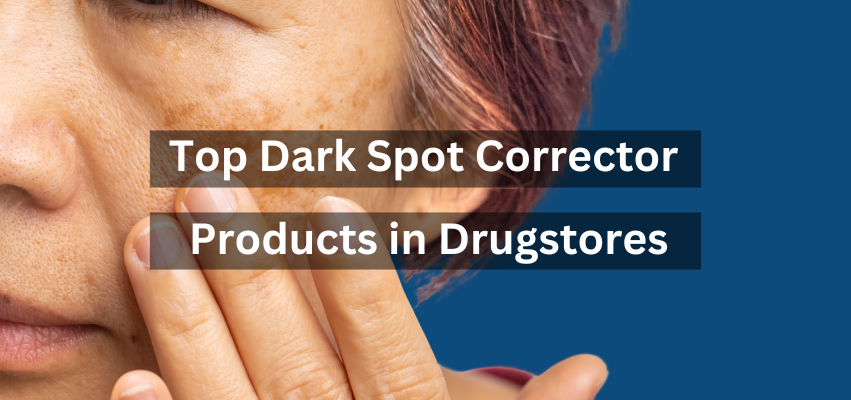
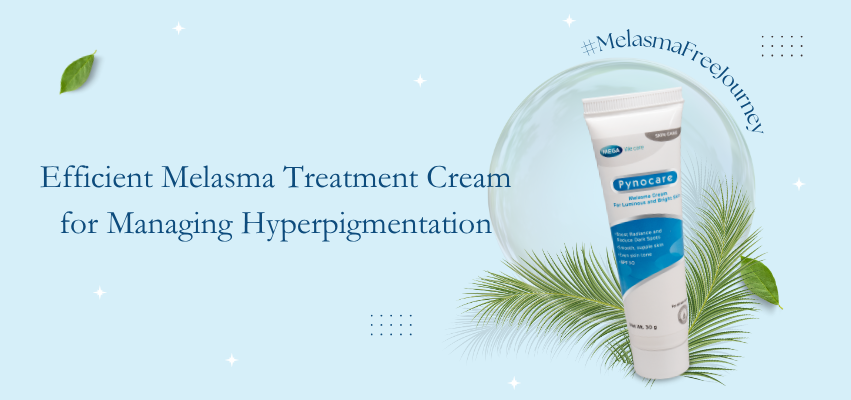
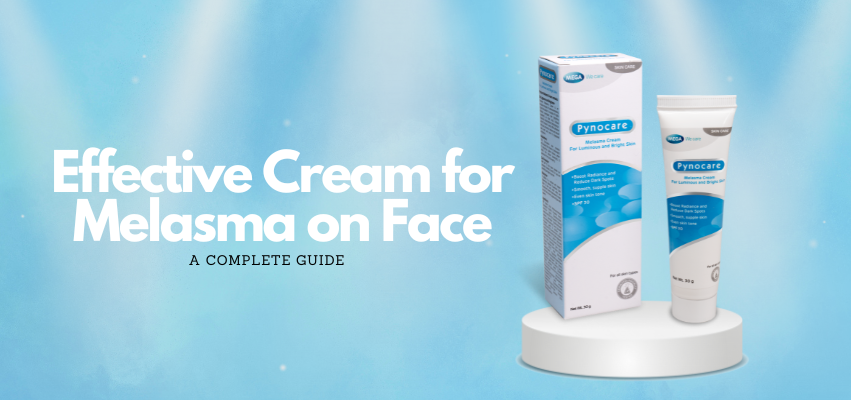
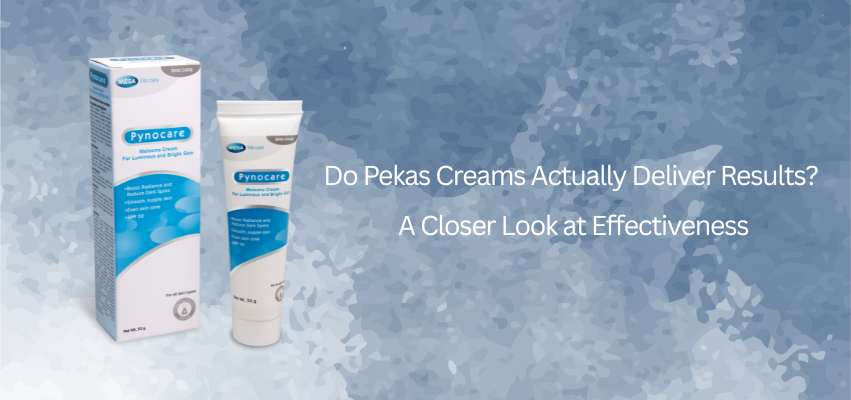


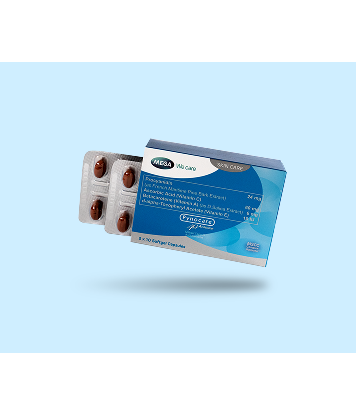













No Comments on Top Dark Spot Corrector Products in Drugstores